- Andean region
- Bolivia
Interesting exchange of experiences between partners and...
Interesting exchange of experiences between partners and farmers of the impulSAS Bolivia programme in the central valley of Tarija
 Agroecological transition
Agroecological transition
Considered as a set of practices, a scientific discipline and a social movement, agroecology is becoming increasingly well known and recognised for its great potential to transform food systems. Agroecology is respectful of the environment – reducing soil, air and groundwater pollution, mitigating climate change – but also of human communities, thanks to the production of healthy, nutritious food without the danger of pesticide exposure for producers, or greater control by farmers over their means of production, and the quest for fair remuneration.
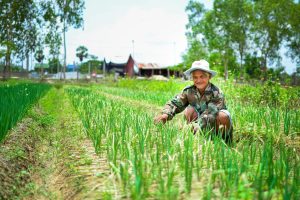
Agroecological farm in Cambodia
Eclosio is involved in the transition to agro-ecological family farming via :
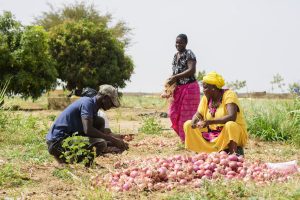
Yessal Sunu MBay “Cleaning up our agriculture” project in Senegal
For a number of years now, Eclosio has been carrying out a variety of initiatives relating to land and natural resource management. Our strategies include the preservation of mangrove areas, the integrated management of water resources and the promotion of improved stoves to reduce wood consumption. We place particular emphasis on the social processes that drive sustainable environmental management, supporting participatory and community-based land-use planning processes in the Andean region and resource user organisations in West Africa and Cambodia.
We also contribute to multi-stakeholder networks to support awareness-raising, multi-stakeholder consultation and advocacy around these issues. We also carry out research activities with academic and local players to support the sustainability, efficiency and impact of our actions.
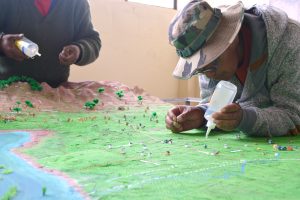
Drawing up a territorial management plan for the Arasaya sub-central zone in Bolivia.
The One Health approach recognises that the health of humans, animals and ecosystems are all linked and dependent on each other. Agroecology and sustainable environmental management promote better overall health of ecosystems and are therefore consistent with the One Health approach. Human health benefits in a number of ways: improving the nutritional quality of food, limiting exposure to toxic inputs, preserving the range of traditional medicinal plants and reducing the economic risks for family farms.
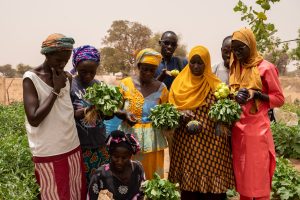
The project to use mushrooms in symbiosis with cultivated plants (“En pleine terre”) has helped to improve the nutritional quality of Senegalese crops and combat anaemia.
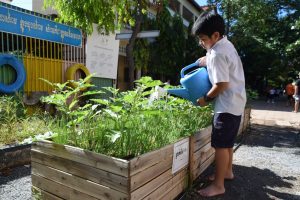
‘Agroecology Garden for the Future’ project in Cambodia